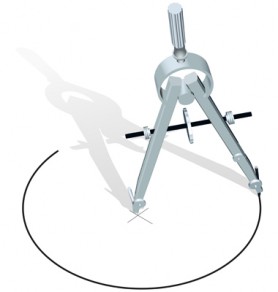
Tuesday
The New York Times memorably dedicated its front page to Covid victims when the official death count went to 100,000. When we hit 200,000, the Ruth Bader Ginsburg’s death dominated the headlines.
To be fair, the Times apparently had something planned for the Covid nightmare whereas Ginsburg’s passing was startling “news,” which is the bread and butter of journalism. How newsworthy is something we’ve seen coming for months, no matter how horrible? The Times’ choice put me in mind of an image in John Donne’s “Valediction: Forbidding Mourning.”
I’ve applied the poem in the past to climate change denialism and am repurposing that post here. Donne talks about two kinds of people, those who focus on immediate cataclysm and those who take the long view. Most of us, when we are dying or facing a long separation, engage in “tear-floods” and “sigh-tempests.” We emotionally react when we encounter a “moving of th’ earth,” whether figurative or literal. Ginsburg’s death was a moving of the earth.
To the Trump administration, which has been trying desperately to use “violence in Democrat cities” to get our minds off of its disastrous handling of Covid, the Ginsburg death must have seemed heaven-sent.
Neither Covid nor climate change have gone away, however. In terms of the poem, they are comparable to Donne’s “trepidation of the spheres” (movement of the stars). The 17th century saw such movement as having a profound effect on worldly events. Scholar Alexander Cummins, in The Starry Rubric: Sevententh Century English Astrology and Magic, shows how seriously experts took it. But because it didn’t have immediate ramifications, it seemed “innocent.” Here are Donne’s opening stanzas:
As virtuous men pass mildly away,
And whisper to their souls to go,
Whilst some of their sad friends do say
The breath goes now, and some say, No:
So let us melt, and make no noise,
No tear-floods, nor sigh-tempests move;
‘Twere profanation of our joys
To tell the laity our love.
Moving of th’ earth brings harms and fears,
Men reckon what it did, and meant;
But trepidation of the spheres,
Though greater far, is innocent.
In other words, “virtuous men” (Socrates would be a good example) see the deep workings of the universe and therefore are not unduly put out by their own passing. Likewise, to use the poem’s drama, Donne urges his wife to accept their physical separation because they have a spiritual bond that transcends time and place. It’s as though they are joined by a fine golden thread that most eyes cannot see, or like a compass that transcribes a circle, with the planted foot rotating in union with the wandering outer pole.
Having used the poem to make my point, however, I now have to qualify it. For all the administration’s attempts to normalize Covid deaths, or for that matter climate change, both are causing earthquakes in the lives of thousands. It does not take finely trained eyes to see packed hospitals or West Coast wildfires. The evidence is there for all to see.
A better analogy is those who refuse to acknowledge what is directly in front of their eyes. Orwell’s 1984 describes those who see only what their leader tells them to see.